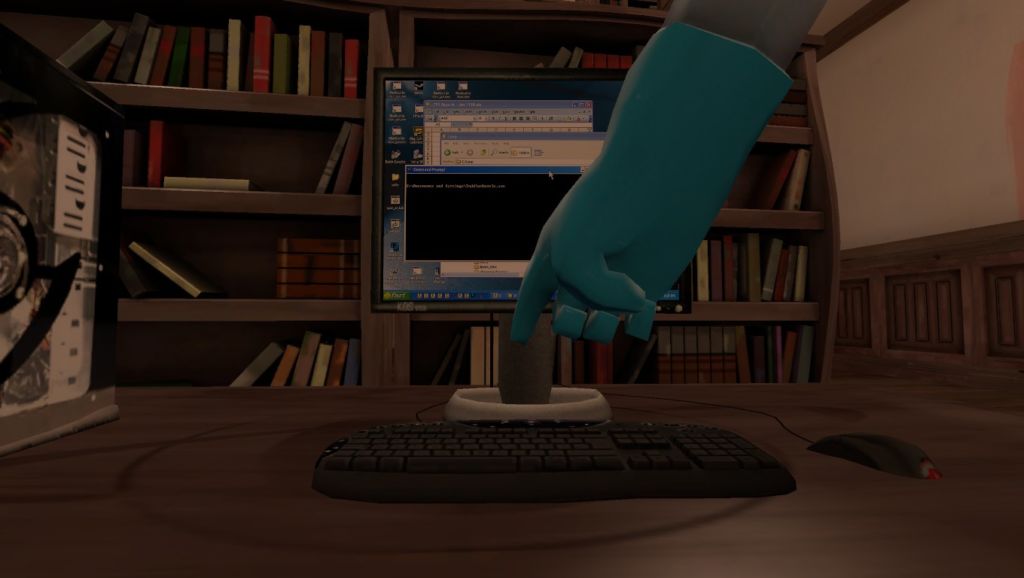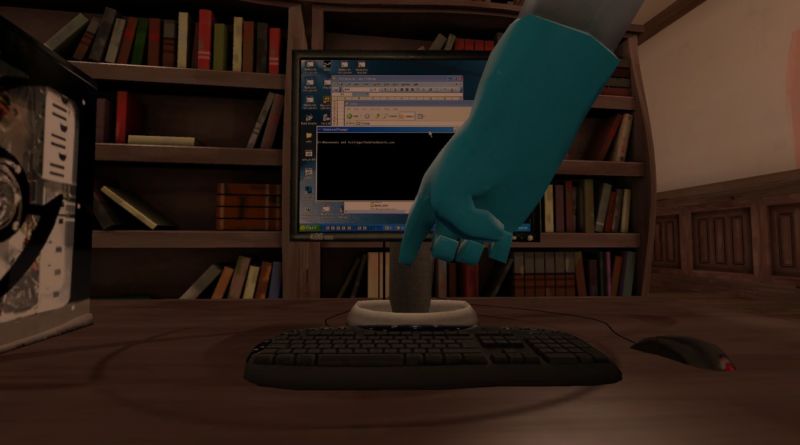5 Random Things to Try If Games are Running Slow
Every computer is unique. Which means everyone’s gaming experiences will be unique. While one game may run fine, another might not. But as time passes and things update and change, so does your gaming experience. For example, I was playing Warframe without issue before the Deimos Arcana update, then, after the update, got a lot of hitching. On the flip side, Minecraft was running fine. These hitches, lag spikes and more are all completely random and unique, different from person to person. And computer to computer. Or even the same computer at different times of the day.

After some messing around, I managed to fix some of the hitching I was experiencing in Warframe. And I’ve decided to share some of these tips with you. From one barely computer-literate person to another.
1. See if your game has any sort of verification or optimization setting
Warframe is a pretty big game. It hovers at around 30-40GB. That being said, Warframe has a lot of background optimization, and a recent 10GB update actually somehow managed to remove about 4GB’s worth of textures. But you’d only get those savings if you optimized your game via the Warframe launcher. This takes a HUGE amount of time, since Warframe is basically copying itself into a separate space, deleting unneeded files and then copying itself back. But every time I’ve done this, I’ve seen improved loading times at the very least. You can also verify the game cache in case files are missing or corrupted, and Warframe will re-download them.
A lot of larger games these days HAVE to have these sorts of settings. With regular updates and spotty internet connections, you never know if a file might get lost or broken somewhere. Thankfully, Steam actually allows you to verify downloads for most games you have. By going to a game’s properties in Steam, you can Verify The Integrity of Game Cache. This will check the game’s files and download anything that’s missing.
2. Check for Driver Updates and Windows Updates
I don’t know if I’m imagining it or not, but whenever there’s an update nearby, everything seems to get slow. Of course, it might just be Windows downloading a massive update behind my back. But updates to both Windows and your graphics cards are worth checking on. Drivers are frankly a magical black box of mystery to me, so maybe there’s something in them that will fix whatever problems you’re having.
Normally, the drivers that seem to need updating the most are graphics cards. nVidia Geforce Experience tends to let me know whenever there’s an update, so I just do them whenever they pop up. Windows on the other hand doesn’t always tell you. Sometimes it will download and install updates on its own, sometimes I have to go and check myself.
You can also go to Device Manager (via Control Panel, not Settings) and look through your drivers. It’s not just graphics cards that need updating, sometimes sound devices need it too.
Although, granted, this might just make things worse. So, uh, if it’s a very big update, making a System Restore Point is ALWAYS a good idea.
However this didn’t solve my Warframe problem, so I moved on to the next thing.
3. Delete some stuff
If you don’t have much space on your hard drives, then your computer will run slow. The unused space on a hard drive is still technically being used, mostly in caching and holding on to temporary files. If there’s not enough space, then Windows will get grumpy and waste time trying to work out what it can delete to make more room for what it’s doing.
A while back, I realized I had over 700 Skyrim saves in my saves folder. At one point, I was getting save numbers over 1000. No wonder Skyrim didn’t like it whenever I brought up the save menu. I ended up backing up my saves folder (located in My Games/Skyrim/saves on Windows) and just kept my last 10 or so saves. I’ve also let my Warframe screenshot folders get insanely large. When my F6 screenshot folder hit 1000 files, there was a noticeable 1 second delay whenever I took a screenshot. Renaming the folder in My Pictures and allowing Warframe to create a new folder (or just deleting all the screenies) can help.
Finally, don’t forget to empty your recycling bin. And other places as well. I once let my recycling bin get to 32GB. If you regularly record video, it’s also worth checking and seeing if you can delete some stuff – I realised I’d left a fuckton of video captures on my SSD drive, and saved up 20GB of space by moving them to external storage.
4. Have you tried turning it off and on again?
I feel like this suggestion applies to phones more than computers, but the modern computer is on for a very long time. For example, I work all day on my computer then play games on it during the night. I could restart it more often and give it a chance to catch up. I don’t know why turning your computer off and on again works. Perhaps it clears caches or something like that. Or maybe your computer is just getting hot. But it’s such a simple and easy thing to try, so it’s almost always worth doing.
Even if you think your computer is fine, maybe a restart will help anyway? Both you and it could do with a break.
5. Mess around with Windows gaming mode
If you’re on newer versions of Windows, it’s a good idea to have a look at the Gaming option in your settings. Turning it on might provide some additional benefits. That being said, some people have actually had better experiences turning Game Mode off. You may also have similar options on your graphics card drivers or related programs. nVidia for example has Shadowplay and Geforce Experience has options that will ‘optimize’ your game settings.
For me, the culprit turned out to be Background Recording. I’m certain I’d turned this off in the past, but somehow it must have turned back on. Windows was recording my gaming in the background in order to allow me to save the past 30 seconds of gameplay. I don’t want that and so I turned the setting back off. Immediately got (some) better results.
Bonus thing you can try.
There’s lots of other things you can also try. Reinstalling a game for example is a bit of a long shot, but sometimes a fresh install will fix everything. This is often the case with heavily modded games. If it’s a Steam issue, you can actually uninstall Steam without uninstalling your games, by copying your Steamapps/common folder to a location outside your Steam installation.
Sometimes though you just can’t find a solution. This is where the power of search engines comes in. But just typing in “x program has crashed” or “y is laggy”, you need to see if there’s any error messages attached. Most games will have some sort of background logging that will create a report when it crashes. Search those for useful error code names and stuff. Worst case scenario, you can use Event Viewer, which will give you a scary list of errors and stuff. Most of these however are (mostly) normal, but if you keep track of when crashes and stuff happens, you can see if any errors pop up in Event Viewer at the same time.
This is by no means a comprehensive list. Or even a good list. But you never know, sometimes you just need someone else to point out a solution for you.
